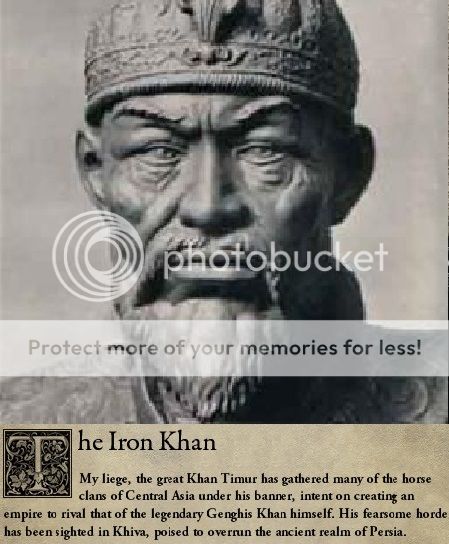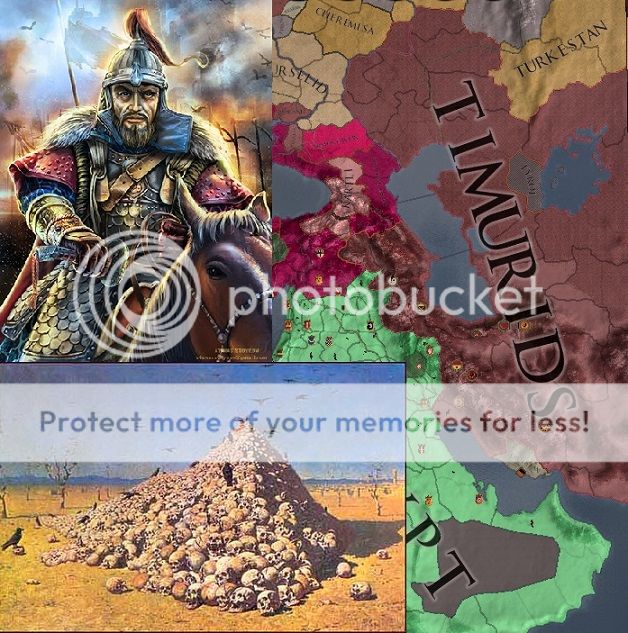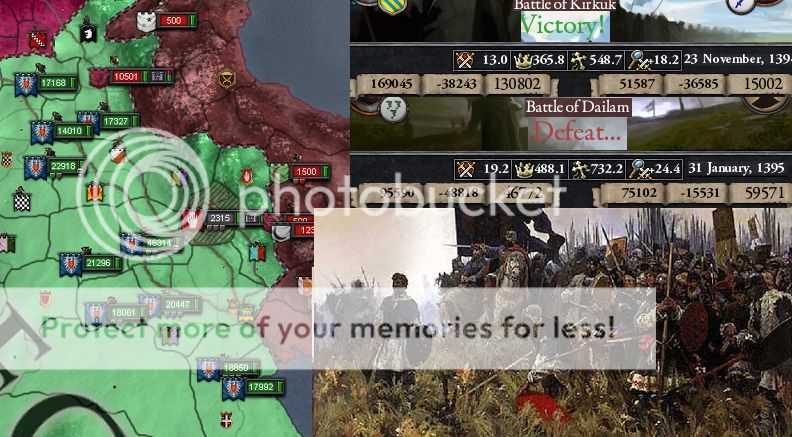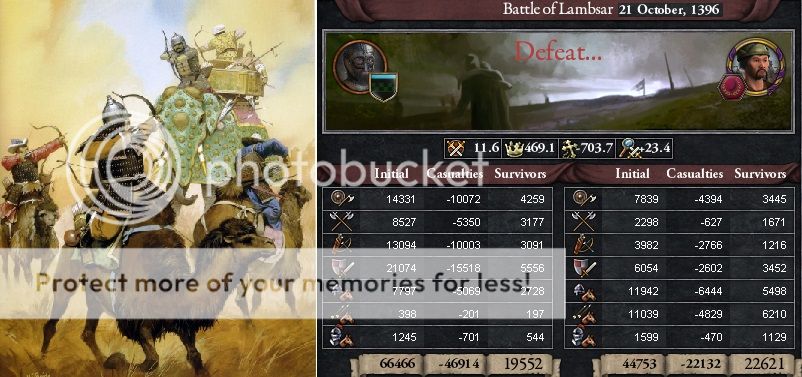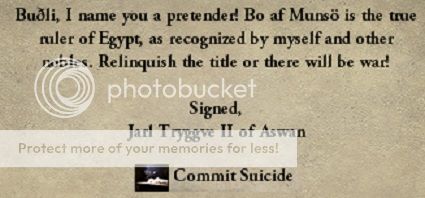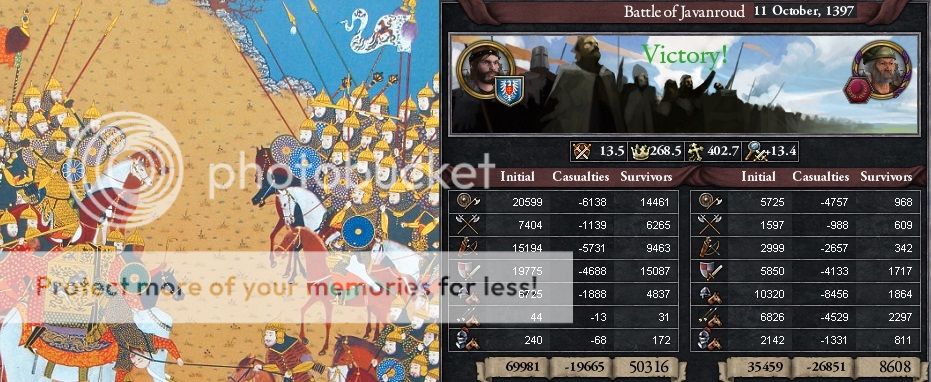We're getting very close to the end of the CK portion of this AAR. Just two updates to go! :O : O :O
Thanks for clearing up the pronunciation guys. This AAR really has had some significant amounts of discussion about linguistics .
.
Yeah, this is the wonderful thing about CK . I kinda miss that random element from other Paradox games. In EU things do have that randomness, but not nearly as much whilst its a bit more predictable in Vicki and HoI. Nothing quite like CK.
. I kinda miss that random element from other Paradox games. In EU things do have that randomness, but not nearly as much whilst its a bit more predictable in Vicki and HoI. Nothing quite like CK.
Thanks! You've arrived just in time to see the ending as well .
.
This is an excellent AAR. I have enjoyed it quite a bit so far.
The letter Þ is actually pronounced like "th," if I recall correctly.
The 'hard' th in "thistle", for example.
In Old Norse, Thor was written as Þór. That's another example. Bear in mind that Þ is the capital letter, and þ is the lowercase. Why exactly that's the opposite of all the letters everyone uses, I have no idea.
Wouldn't that be the "soft" (voiceless) 'th' then? And ð would be the voiced 'th' I think.
I didn't want to bring up voice/less, because that would derail this into a boring linguistics discussion.
'f' is voiceless, 'v' is voiced. I think 'f' is the harder sound, but that's just how I hear it. Oh well. Everybody understands what I meant.
I think you mean ameːːːːːːːːzing linguistics discussion.
But yeah hard and soft is a valid layman's description (in phonology voiceless sounds are considered stronger than voiced ones.), it takes more energy to produce a voiceless sound than a voiced one.
Thanks for clearing up the pronunciation guys. This AAR really has had some significant amounts of discussion about linguistics
The shift of fortune is like a see saw... One second you are crushing enemies with a glorius ruler the next you are getting crushed by rebels with an incompetent ruler.
Yeah, this is the wonderful thing about CK
This is an absolutely fantastic read, just read through the whole thing in the last 2 days.
Thanks! You've arrived just in time to see the ending as well




